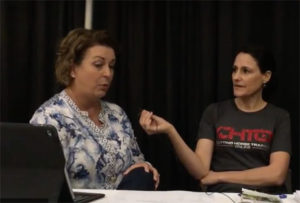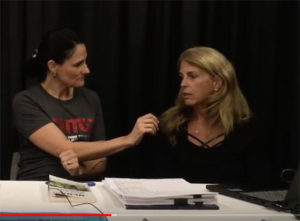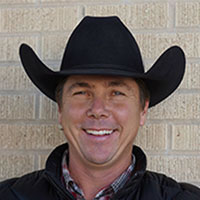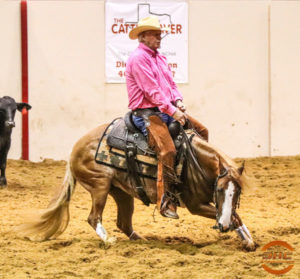
Ora Diehl

Denise Seiz
Both ladies said everyone seemed pleased and happy with the outcome except for some of the open riders. While not completely against the idea because they agree that change is needed, many trainers were concerned about payouts being reduced.
Trainer Jonathan Rogers said, “It didn’t pay well and it was very tough to make the finals. You have to have a good horse no matter what. For example, the same horse won the Intermediate and the Open which shows that it has a lot to do with the horse rather than the rider.”
He said the new system seemed to work great for the amateur and non pro classes, but that the open was a different ball game. He suggested creating levels based on the horse’s earnings and not the riders as a better alternative for the Open class.

Jonathan Rogers
“We need a change or there isn’t going to be an NCHA in the next 5 years. This just isn’t the change we need. When I was a loper in this industry cutting was fun and everyone encouraged each other. Now it isn’t like that, now it is all about the money and it isn’t exciting until Futurity time because [it is the one show] no one knows what they’re going to see,” said Jonathan.
On a post-show survey and Denise stated, “I had 86 who all had positive feed-back and a yes vote on the system, and 1 maybe. I didn’t have anyone tell me no on this new system, which made us feel pretty optimistic and speaks for itself.”
Denise and Ora said the only difficulty they encountered with the new levels was entering it into the software. While it wasn’t impossible, they said it did take a few extra steps. They both agreed the software can be re-tuned if more show producers and the NCHA decide to go forward with this format.
Non pro rider James Hooper admitted that he was going into the Cotton Stakes thinking that the new leveling system was too much of a drastic transition. Once he got to the show however, he was blown away by the optimistic atmosphere. He said there were several people that made the finals that he had never seen before.

The Senior Division Champion in the Intermediate Derby Amateur, James Hooper on Cr Heart Attac at Cotton Stakes
“The NCHA is in trouble if we don’t do something. A level playing field like this will encourage people to get involved and stay involved. Trainers are running people off because they dominate the finals,” James said.
He agreed that this may dilute the purse, or make the open not pay as much, but that the organization needed to do what benefited the most people.
While there was some difference of opinion in the way the new system was implemented, the need for change was unanimous.
“We’ve lost so many people and the change in atmosphere at West Monroe proved that change is what we need,” said Jonathan.
